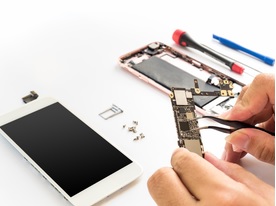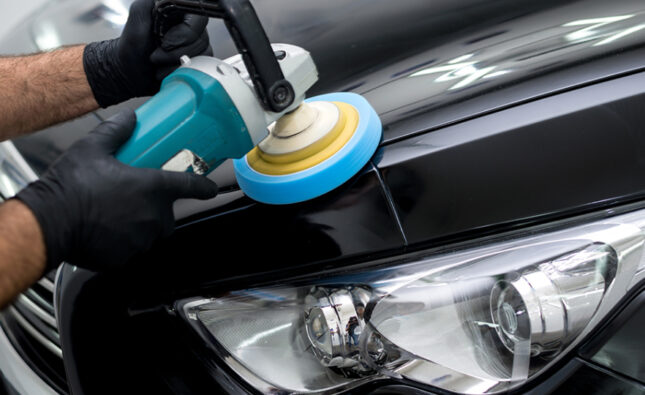
Collision Repair Houston, TX refers to the repair of vehicles that have been damaged due to accidents or collisions. Houston, TX is home to several collision centers, body shops, and auto repair facilities that specialize in auto body repair and restoration services for all makes and models of vehicles.
Collision Repair Process | Houston, TX
The collision repair process involves several steps to restore a damaged vehicle to its pre-accident condition. Here are the general steps involved in the collision repair process in Houston, TX:
-
Schedule an appointment and get a free estimate
The first step in the repair process is to schedule an appointment with a collision center or auto body shop in Houston, TX. The technician will inspect the damage and provide a free estimate for the repair services.
-
Tow the vehicle to the repair facility
If necessary, the vehicle can be towed to the repair facility for inspection and repair. The facility offers towing services to ensure that the vehicle is safely transported to the center as soon as possible.
-
Inspect the damage:
Once the vehicle is at the repair center, it is inspected thoroughly to identify all areas of damage. The certified technician then creates a comprehensive repair plan to restore the vehicle to its pre-accident condition.
-
Repair the damage:
The repair process can include paintless dent repair, bumper repair, fender repair, and full-service restoration. The certified technician uses state-of-the-art equipment and industry-leading techniques.
-
Paint the vehicle:
Once the repairs are complete, the vehicle is painted to match the original color and finish. The auto body shop uses high-quality paint and industry-standard techniques to ensure a seamless and flawless finish.
-
Quality check:
They inspect vehicle thoroughly and complete all repairs to the highest quality standards.
-
Get back on the road:
Once the vehicle passes the quality check, the customer is notified, and they can pick up their vehicle. The facility offers rental car services and ensures that customers can get back on the road as soon as possible.
-
Lifetime warranty:
The collision center guarantees quality repairs and provides a lifetime warranty on all repairs performed. The center specializes in restoring vehicles to look and perform like new ones, and they use state-of-the-art equipment.
The certified technicians at collision centers and auto body shops in Houston, TX specialize in repairing all makes and models of vehicles, and they offer friendly and timely customer service at a reasonable price.
Common Types of Collision Repair
There are several types of collision repair that a vehicle may require depending on the type and extent of the damage. Here are some of the most common types of collision repair:
- Paintless Dent Repair: This type of repair is used to fix minor dents and dings in the vehicle’s body without the need for repainting the affected area. The technician uses special tools and techniques to carefully manipulate the metal back into its original shape.
- Bumper Repair: Bumpers are designed to absorb impact during a collision, but they can sustain damage that requires repair or replacement.
- Frame Repair: The frame is the backbone of the vehicle and can be severely damaged during a collision. The technician will use specialized equipment to straighten the frame and restore its structural integrity.
- Auto Body Painting: Paint damage can occur during a collision, or the vehicle may need to be repainted to match the original color after other repairs. The technician will sand and prep the area before applying a new coat of paint.
- Auto Glass Replacement. Damage to the windshield or other windows can occur during a collision. And you should replace them for safety reasons.
- Full-Service Restoration: When the vehicle has sustained extensive damage and requires a complete overhaul to restore it to its pre-accident condition.
Regardless of the type of collision repair needed, it’s important to work with a certified technician who has the knowledge and expertise to repair the vehicle properly. Additionally, many repair centers offer a lifetime warranty on their work. Giving customers peace of mind knowing that their vehicle is in good hands.
What is the goal of collision repair?
The goal of collision repair is to restore a damaged vehicle to its pre-accident condition, both structurally and cosmetically. This involves repairing or replacing damaged components, such as body panels, frames, and mechanical systems. The goal is to ensure the vehicle is safe to operate and looks as close to its original condition.
Benefits Of Car Repair
- Enhanced Safety: Ensuring that your car is in optimal condition through repairs contributes to safer driving. Addressing issues such as faulty brakes, worn-out tires, or malfunctioning lights helps prevent accidents and protects both you and other road users.
- Cost Savings: Regular car repairs and maintenance can help detect potential problems early on, preventing them from escalating into more significant and costly issues. Fixing minor problems promptly can save you from expensive repairs or even the need for a new vehicle in the long run.
- Improved Performance: Over time, various components of a car experience wear and tear. By repairing or replacing worn-out parts, you can restore your vehicle’s performance and efficiency. This can result in better fuel economy, smoother handling, and a more enjoyable driving experience overall.
- Increased Resale Value: If you plan to sell your car in the future, regular repairs and maintenance can significantly boost its resale value. A well-maintained vehicle with a comprehensive repair history is more appealing to potential buyers and can fetch a higher price.
- Longevity: Proper care and timely repairs can extend the lifespan of your vehicle. Regular oil changes, filter replacements, and fluid checks, among other maintenance tasks, can keep your car running smoothly for years to come.
- Warranty Compliance: If your car is still under warranty, adhering to the manufacturer’s recommended repair and maintenance schedule is crucial. Regular servicing ensures that your warranty remains valid, allowing you to take advantage of any covered repairs or replacements.
- Peace of Mind: A well-maintained car provides peace of mind to its owner. Knowing that your vehicle is in good condition and less likely to encounter unexpected breakdowns or failures can alleviate stress and increase your confidence while driving.













